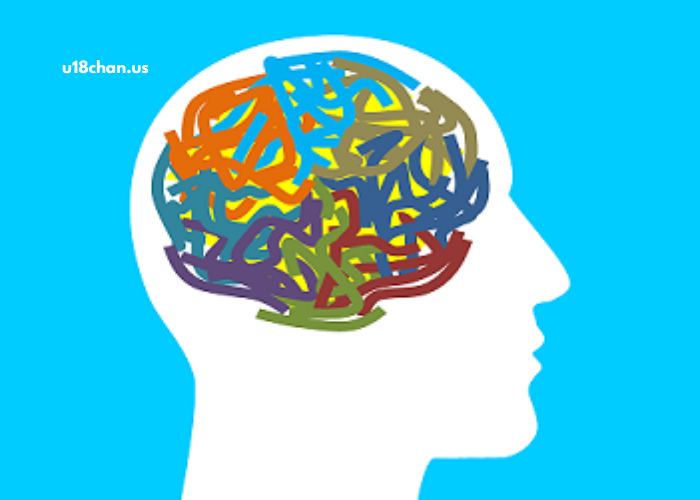Mental health is a crucial aspect of our overall well-being, and with the increasing pressures of modern life, it’s essential to raise awareness about mental health and develop effective coping strategies. As we move into 2025, new challenges in mental health are emerging, and so too must our approaches to managing stress, anxiety, depression, and other mental health conditions. In this article, we will explore the importance of mental health awareness, the evolving landscape of mental health in 2025, and practical coping strategies that individuals can adopt to maintain good mental health.
The State of Mental Health in 2025
Mental health issues have been prevalent for years, but with the global events of the past few years, such as the COVID-19 pandemic, political instability, and economic uncertainty, mental health has become more of a focus than ever before. The world has undergone rapid changes, and these shifts have left an undeniable impact on individuals’ psychological well-being.
In 2025, mental health is expected to continue being a significant concern, with the rise of digital technology, social media, remote work, and the fast-paced nature of modern society contributing to increased rates of anxiety, depression, and burnout. As society becomes more aware of the importance of mental health, it’s critical to stay informed about coping mechanisms and preventive strategies.
The Importance of Mental Health Awareness
Promoting Open Conversations
One of the primary goals of mental health awareness is to break the stigma surrounding mental health issues. For years, mental health struggles have been misunderstood or hidden, causing many to suffer in silence. However, recent efforts to bring mental health to the forefront have allowed for more open and honest conversations.
By promoting mental health awareness, we empower individuals to seek help and support when needed. The more we talk about mental health, the more normalized it becomes, and the less likely individuals are to feel isolated. Mental health awareness campaigns, educational programs, and community support systems all play vital roles in this process.
Reducing Stigma
The stigma attached to mental health problems can prevent individuals from seeking the care they need. For example, many people still view mental illness as a personal weakness or a sign of failure. This stigma is harmful and can lead to feelings of shame, embarrassment, or fear of judgment, ultimately worsening the condition.
As mental health awareness grows, more organizations, governments, and mental health professionals are working to reduce stigma and provide more accessible resources for those in need. This shift in perspective is essential for ensuring that everyone receives the help and support they deserve.
The Growing Need for Coping Strategies
Stress and Anxiety in the Modern World
With the fast-paced lifestyle that is becoming the norm in 2025, it’s no surprise that stress and anxiety are on the rise. Work-related pressures, social comparisons through social media, financial concerns, and the uncertainty of the future contribute to a growing sense of anxiety in individuals of all ages.
The consequences of chronic stress and anxiety can be far-reaching, affecting not only mental health but also physical well-being. High levels of stress can lead to heart disease, high blood pressure, and weakened immune systems, further emphasizing the need for effective coping mechanisms.
Burnout in the Digital Age
Remote work and the digitalization of many industries have transformed the way people work, creating both benefits and challenges. While remote work offers flexibility, it can also lead to burnout. The lines between work and personal life become blurred, and constant connectivity through emails and messaging platforms can leave individuals feeling exhausted and overwhelmed.
Burnout, which is often characterized by emotional exhaustion, lack of motivation, and a sense of detachment from work, is increasingly common. As we head into 2025, addressing burnout and adopting strategies to prevent it will be essential to protect both mental and physical health.
Coping Strategies for Mental Health in 2025
Mindfulness and Meditation
Mindfulness and meditation have become popular tools for managing stress and enhancing emotional well-being. These practices involve focusing on the present moment and cultivating a state of awareness without judgment. In 2025, these techniques are expected to become even more integrated into mainstream mental health care.
Benefits of Mindfulness:
- Reduces stress and anxiety
- Enhances emotional regulation
- Improves concentration and focus
- Promotes relaxation and better sleep
By incorporating mindfulness practices into daily routines, individuals can cultivate a sense of calm amidst the chaos of everyday life. Simple techniques like mindful breathing, body scans, and meditation can significantly reduce feelings of overwhelm and help manage anxiety.
Digital Detox and Social Media Management
Social media has a complex relationship with mental health. While it can provide a sense of connection, it can also contribute to stress, feelings of inadequacy, and social comparisons. In 2025, many people will be more conscious of their social media use and the impact it has on their mental health.
Digital Detox Tips:
- Set boundaries for screen time, especially before bed
- Schedule regular breaks from social media
- Engage in real-world interactions to foster genuine connections
- Use social media for positive content and personal growth
A digital detox allows individuals to disconnect from the pressures of online life and refocus on their immediate surroundings. By reducing exposure to the constant stream of curated content, individuals can maintain healthier self-esteem and emotional well-being.
Physical Activity and Exercise
Physical activity is a powerful tool for combating mental health challenges. Exercise releases endorphins, which are natural mood boosters that help alleviate feelings of depression and anxiety. Regular physical activity also helps reduce stress, improve sleep, and increase energy levels.
Exercise for Mental Health:
- Aim for at least 30 minutes of moderate exercise most days of the week
- Find activities that are enjoyable, such as walking, swimming, or yoga
- Consider group fitness classes or outdoor activities to build a support network
By prioritizing physical activity in daily routines, individuals can experience a significant improvement in their mood and overall well-being.
Cognitive Behavioral Therapy (CBT)
Cognitive Behavioral Therapy (CBT) is one of the most effective therapeutic approaches for managing mental health conditions such as anxiety and depression. CBT focuses on identifying and changing negative thought patterns and behaviors that contribute to emotional distress.
In 2025, access to CBT is expected to expand, with more digital platforms offering online therapy and guided CBT exercises. Individuals can learn how to reframe negative thinking, develop healthier coping mechanisms, and gain a greater sense of control over their emotional responses.
Seeking Professional Help
While self-care strategies like mindfulness, exercise, and digital detox are essential for mental health, there are times when professional help is necessary. Mental health professionals, including therapists, counselors, and psychiatrists, are trained to assist individuals with a wide range of mental health conditions.
If you are struggling with persistent feelings of sadness, anxiety, or overwhelm, seeking professional help is crucial. Therapy can provide support, guidance, and coping strategies tailored to your unique needs.
Building Strong Social Connections
Human connection plays a vital role in mental health. In an increasingly isolated world, cultivating meaningful relationships with family, friends, and communities is more important than ever. Social support provides a sense of belonging, reduces feelings of loneliness, and enhances emotional well-being.
Ways to Strengthen Social Connections:
- Make time for regular social interactions, even virtually
- Join community groups or online communities with shared interests
- Practice active listening and emotional support in relationships
By building a strong network of supportive individuals, people can reduce feelings of isolation and foster a sense of connectedness, which is essential for maintaining mental health.
The Role of Employers in Mental Health Awareness
In 2025, it’s expected that companies and organizations will take a more active role in supporting the mental health of their employees. Employers have a responsibility to create a work environment that promotes well-being, prevents burnout, and provides access to mental health resources.
Employer Strategies for Supporting Mental Health:
- Offer mental health days and paid time off for self-care
- Provide access to counseling services or Employee Assistance Programs (EAPs)
- Encourage a work-life balance and respect for personal boundaries
- Create an open, stigma-free culture surrounding mental health
When companies prioritize mental health, employees are more likely to feel supported, valued, and empowered to seek help when needed.
Conclusion
Mental health awareness is more critical than ever as we move into 2025. With the evolving landscape of mental health, it is essential for individuals to develop effective coping strategies to manage stress, anxiety, and other mental health challenges. From mindfulness and exercise to digital detoxes and seeking professional help, there are numerous approaches that can help individuals maintain their mental well-being.
In addition to individual efforts, societal change is necessary to create a supportive environment that reduces stigma and provides resources for those in need. As we move forward, let us continue to prioritize mental health, cultivate open conversations, and support one another in fostering a healthier, happier future for all.
By staying proactive and adopting these strategies, we can all contribute to a world where mental health is given the attention and care it truly deserves.




